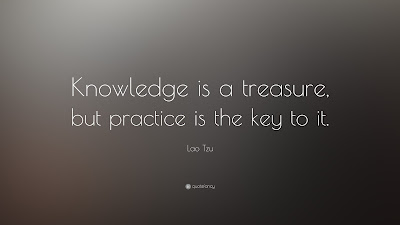Why the former Knowledge Management was never be fully adopted by employees ?
Following a previous blog (here)
summarizing how Atos internal Digital transformation has well evolved from
ZeroEmail™ over Social Collaboration to WellBeingAtWork, I would like to explain
a good side effect on how the Social Collaboration is disrupting the old
Knowledge Management.
It’s time to unleash
your Knowledge assets
Our Enterprises operates in a knowledge economy that is
undergoing significant transformation. You can no longer have critical
information locked into individual mailboxes, or folders and archives unavailable
to your employees and stakeholders.
A good Social Collaboration, consisting of an Enterprise
Social Network creates a global structure of so-called communities that should encompass all your organization, your
markets, portfolio and your customers. All communities and knowledge should be
globally available to your employees within a unique collaborative platform.
So why people are so excited about Enterprise Social
Networks ?
What I found within Atos after 5 years of promoting social
collaboration are the following benefits:
- It’s reduce internal emails overload and fewer meetings
- It’s accelerate peer support and knowledge re-use
- It’s share the Power of Knowledge (enterprise social technologies enable personal knowledge to become organizational knowledge)
- It’s work because employee daily business create context & audience automatically
- It’s work by connecting people (and no longer documents)
Knowledge Management versus Knowledge sharing
So whay so many old Knowledge Management solutions was not
working and was not adopted ? Mainly because the KM governance :
- wanted to manage and control all the company knowledge
- defined knowledge as a transferable good, which is centralized provided
- required knowledge sharing without providing any audience
But we all like to share knowledge on the web (wiki, blog,
social media…) for 2 reasons, if we get the right audience, if we can communicate and have social conversations with other people, if we get positive feedbacks from others (that promote
ours status as expert).
Without that we are not motivated to share or to use within
the old KM . Because we share knowledge when we have the right audience and
purpose, that motivates us and create the right context.
Knowledge Sharing is …not a new knowledge management tools,
no longer about storing knowledge on everything, but it’s about Knowledge just in time, that happens by connecting people in
formal and informal networks.
Knowledge communities can also give to the “knowledge” a
face and a name, accelerates the recognition and e-reputation of your staff.
To succeed the knowledge sharing and collaboration
(r)evolution, you need a coordinated organization (communities manager &
leaders), to adapt & simplify your technological landscape (with social as
the entry point) and a new culture and team spirit.
Knowledge sharing depends on the habit and willingness of
the knowledge worker to seek out and to be receptive to these knowledge
sources. The right digital culture, incentives, and so on must therefore be
present.
But not with a classic « change » culture but more with an « influence »
culture by using ambassadors, influencers, collaborative leaders with
visibility, by promoting success stories, by rewarding innovators and entrepreneurs
, by changing the old KM habits …there is a lot to be done !
A social networks properly integrated and promoted will be
adopt by many employees and can become your indispensable knowledge
infrastructure of your organization !


Aucun commentaire:
Enregistrer un commentaire